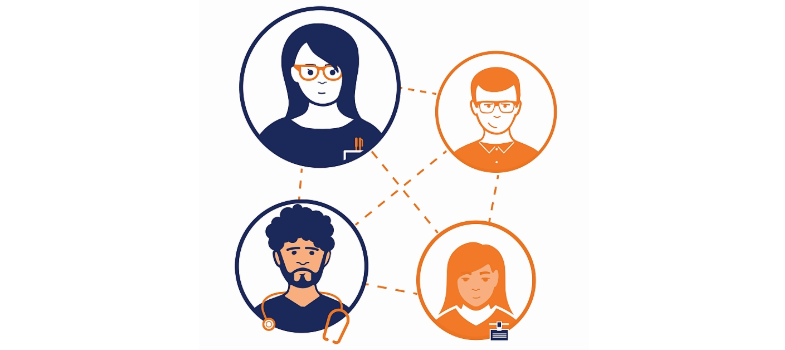Case Study 3: Faisal
Introduction
Faisal is a 70 year-old man, originally from Turkey. He is now a British citizen and has lived in London for the past 20 years. He was widowed five- years ago and now lives alone in a small rented third floor flat. He has the support of his two sons and a daughter, all of whom live in London and the South East. Faisal has a degree in the history of art but has spent most of his working life as a builder. His one main social interest remains visiting art galleries.
Faisal was diagnosed with MND two-years ago. His presenting symptoms were slurred speech, coughing on drinks, occasional word finding problems and losing track of finances and day-to-day planning. Currently he is happy to attend neurology appointments but sees little value in seeing other professionals. His family are very concerned about his speech, swallowing and his ability to manage life at home. They also feel that he has become more short-tempered. Faisal, however, sees no problem in these areas.
Case Presentation
Faisal’s family initiated investigations by taking him to his GP. They were concerned about his coughing on drinks, difficulties in making decisions, problems ‘remembering words’ and responding to new situations. His GP referred him to speech & language therapy (SLT) to investigate his swallow and to a local memory clinic to consider his decision making and planning. He attended the SLT appointment but declined the memory clinic.
Faisal’s SLT observed fasciculations (involuntary muscle movements) on his
tongue, as well as obvious word finding problems, and suggested to the GP that
a referral to a neurologist would be helpful. A few months later Faisal
saw a general neurologist at his local hospital. The neurologist suspected MND
but a referral was made to a specialist neurologist for confirmation. A
definite diagnosis of MND with bulbar type symptoms was then made following a
full neurological examination. Throughout this process Faisal has been very
reluctant to attend appointments, regularly complaining that ‘there is nothing
wrong – I’m just getting old’.
Over the past two years Faisal has:
• Lost a significant amount of weight
• Reduced his oral intake to soft foods
• Experienced an increasing number of falls, particularly in
accessing his flat
• Become breathless on exertion, particularly when climbing
the stairs
• Relied increasingly on his children for shopping and some
personal care
• Become unintelligible except to his close family
• Displayed unpredictable behaviour towards family and
professionals, including inappropriate laughter and crying.
• Experienced problems in understanding what others are
saying to him
• Remained very reluctant to participate in any decision
making about his future care or treatment
• Complains that nobody wants to be with him and that he has
nothing to do during the day.
The family now feel that Faisal is unable to cope at home. They are very worried about his unpredictable behaviour and signs of disinhibition (e.g. swearing at strangers in the street).
At his last MND clinic visit he underwent an Edinburgh Cognitive and Behavioural ALS Screen (ECAS). This revealed a clear frontotemporal dementia (FTD).
Management and Outcome
Faisal has attended his local specialist MND clinic (every
three months). His SLT and dietician have made recommendations regarding
appropriate consistencies and have mentioned the availability of a feeding tube
(gastrostomy) and a computer through which he can communicate (an augmentative
and alternative communication system), it is recognised however, that his word
finding problems could present additional problems. Faisal has not wanted to
engage in these discussions.
It has become apparent that his cognitive function has deteriorated. He becomes
confused in new surroundings, is resistant to change, finds understanding
complex language difficult, and cannot easily understand or recognise other
people’s emotions.
- what do you believe are the 2/3 main issues?
- what needs to happen next?
- who to involve?
- how you would organise those next steps?
- what is the key information you would pass on to other MDT members and how?
Compare your answers to those of 2 other MDTs by watching these videos:
Oxford Group Case Three: https://youtu.be/SlvsARatSk8
Physio Case Study Three: https://youtu.be/0zdN1mYE13k